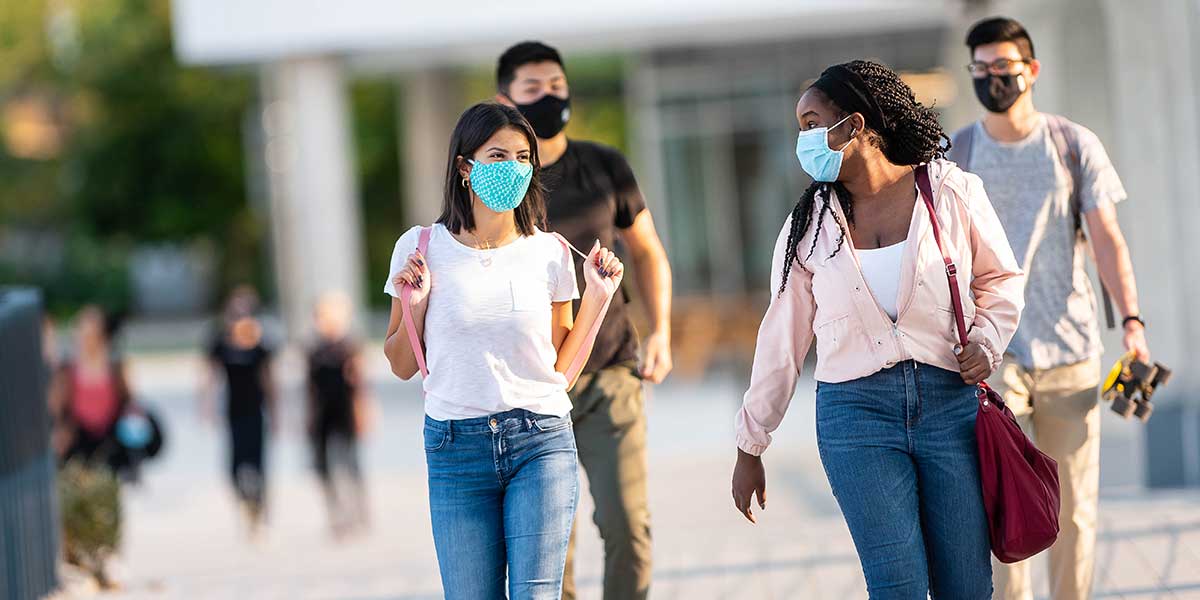
As the days grow longer and the weather warms, more Canadians are heading outside to safely enjoy activities during the pandemic.
Dr. Anna Blakney, assistant professor in UBC’s School of Biomedical Engineering, Michael Smith Laboratories and vaccine expert, regularly fields questions about vaccines from her more than 217,000 followers on her TikTok account.
Here she addresses some popular myths about COVID-19.

Dr. Anna Blakney
Myth #1: Warmer weather slows down COVID-19 transmission.
The best evidence suggests warm weather does not affect the actual coronavirus. However, when the weather is nice more people spend more time outdoors and there’s less transmission outside compared to inside. So in theory, there should be less transmission in the spring and summer.
Of course, we should continue to follow public health guidelines while outside—keep physically distanced, wear a mask and wash your hands often. But COVID-19 is a respiratory infection spread by breathing—there’s no conclusive evidence on whether or not the outside temperature directly affects transmission.
Myth #2: You can catch COVID-19 in swimming pools via water transmission.
COVID-19 is a respiratory disease that spreads in the air. The best available evidence strongly suggests that when virus particles hit chlorinated water, like in most swimming pools, the particles are no longer infectious.
Myth #3: Vitamin and mineral supplements prevent and cure COVID-19.
Proper nutrition is very important to keep your immune system healthy. We should eat healthy foods, drink lots of water, maintain our vitamin D levels, get enough sleep and try to minimize stress in our lives the best we can. So if you contract COVID-19, vitamins and minerals will remain an important part of your recovery, but they won’t act as a cure.
Myth #4: Mosquitos, ticks and fleas can carry and transmit COVID-19.
Mosquitos, ticks and fleas transmit disease through their bite to your bloodstream. Because COVID-19 is not a blood-borne virus, there’s no evidence it can be spread by mosquitos, ticks and fleas.
Myth #5: After getting the vaccine, we won’t need masks anymore.
Here in Canada, because the majority of the population has not received their first dose of the COVID-19 vaccine, we still need to wear masks after we receive the vaccine because it’s still possible to infect someone who hasn’t been vaccinated. While the vaccines have been shown to reduce transmission, they are not 100 per cent effective at reducing transmission altogether. Once more of the population is vaccinated, the need for masks will decline.
Myth #6: I’ve had COVID-19 so I don’t need to get vaccinated.
It’s true that past COVID-19 infection gives you some level of immunity in the future, but the vaccine’s immunity level is much higher. We want everyone to have maximum immunity and the best way to do that is to get the vaccine. Also, no vaccine is perfect—there’s still a chance you could contract COVID-19. But if you’re vaccinated, it will help prevent serious illness and the vaccines are very effective at preventing hospitalization due to COVID-19.